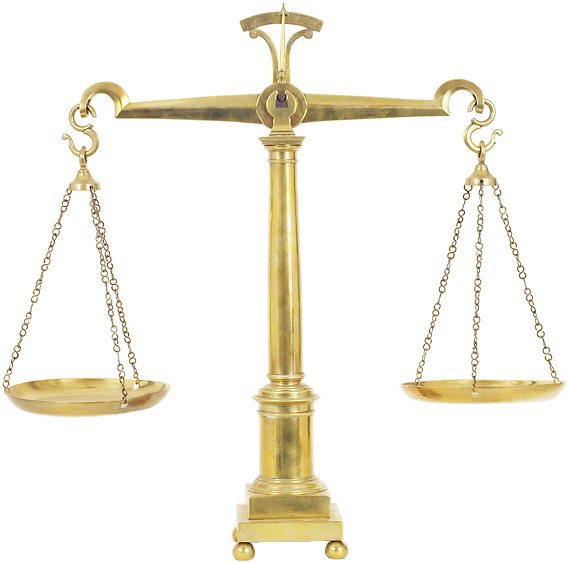Wills, Living Wills, Health Care Proxies
New York Last Will And Testament
In New York State, a person’s Last Will and Testament is a written document that is lawfully “executed” (signed) by a person (called a “testator”) who declares his or her intentions as to how he or she want his or her property and assets distributed after his or her death. A Last Will and Testament may also provide for the appointment of a guardian for minor children. To be a valid Last Will and Testament, it must be lawfully witnessed. There are legal, technical and formal requirements that must be complied with to have a valid Last Will and Testament.
Unlike some other states, including California, which is community property state, property or assets that you acquired during the course of your marriage and which are your sole or separate property may not be automatically inherited by your husband or wife upon your death if your spouse survives you.
Consult With A Lawyer
You can call the Law Office of Jerold S. Slate at (845) 471-4141 for a personal and confidential consultation with a lawyer about helping you prepare your Last Will and Testament.
Valid Last Will And Testament In New York
A valid Last Will and Testament must be in writing and signed at the end by the “testator” or “testatrix” (the person who is making the Will). The Will must be declared by the testator or testatrix as the maker’s Last Will and Testament. Any Last Will and Testament that was made because of undue influence, duress or fraud can be declared illegal and unenforceable. The Last Will and Testament must also be acknowledged as such and signed before two witnesses. Generally, a person who is named as a beneficiary in a Last Will and Testament should not serve as a witness.
Properly Prepared And Executed Wills
At the Law Office of Jerold S. Slate, we will help you prepare your Last Will and Testament and any other relevant legal documents so that the property and assets (your “estate”) that you own at the date of death will be passed on and distributed to the persons that you intend. All required procedures will be followed to assure that your Last Will and Testament conforms with the legal requirements of the State of New York so that you will have a valid Last Will and Testament.
The Executor Of Your Last Will And Testament
You should select a person who you trust, is honest, careful, organized, reliable and efficient. The responsibility of an Executor is to carry out the wishes and intentions of the person making the will (the “testator”). When you make a Will and you name an executor, you want an executor who can take on the legal responsibility of taking care of the business of seeing to it that all of your property and assets are distributed according to your Last Will and Testament, that any credit cards and subscriptions are cancelled, the beneficiaries of your Will are properly notified, final taxes are paid, all property and debts are accounted, an attorney is hired if needed and the probate of your will is carried out according to the law.
Guardian For Children
Generally, unless a trust is established for the distribution of property or assets to minor children, it will be necessary to name a guardian for property passed by Will to a minor child if your spouse does not survive you, or you do not trust your spouse or you and your spouse die at the same time or you are a single parent.
When selecting a guardian you should select a person who is honest, reliable, and has good judgment and integrity and who will be responsible for managing the property, money and other assets that you leave to your minor children, in their best interests, consistent with intentions expressed in your Last Will and Testament.
Consult With A Lawyer
When you have specific concerns about how to distribute your property pursuant to your Last Will and Testament or through any other legal means and are concerned about caring for minor children if you should die before your children become an adult, you can call the Law Office of Jerold S. Slate at (845) 471-4141 for a personal and confidential consultation to discuss your concerns and to help you prepare your Last Will and Testament. Attorney fees will vary depending on the time and complexity of drafting your Will. If you have any other questions concerning Wills under New York State Law, you can call the Law Office of Jerold S. Slate.
New York Living Wills
The purpose of a Living Will, sometimes referred to as an Advanced Care Directive, is to tell health care and medical care providers about the type of medical care or treatment that you want to have or do not want to have if you are not able to inform them at the time that you may need such medical care or treatment. By clearly expressing your intentions and wishes about potential medical care and health care if the time comes when you are unable to do so, your family or other persons very close to you who otherwise might have to make very difficult decisions for you, if you are unable to do so, can be relieved of those decisions because you will have expressed your intentions and wishes in a legal document.
A Living Will can express a person’s intentions and directives about whether or not to prolong life through artificial means through medical devices, artificial feeding devices or resuscitation efforts. Living Wills are legally enforceable on health care providers, hospitals and physicians.
When you prepare a Living Will and provide advance directives, if there is a medical emergency and you are unable to express your own decision about your medical care and treatment, you can have the opportunity of stating your wishes and intentions specifying the kind of medical care or procedures that you want or do not want.
Some people do not wish to have continued medical care if they are comatose or in a “persistent vegetative state.” Other people will want to be maintained on a life support system for an extended period of time if that is possible. By preparing a Living Will, you have the right to make the choice about future medical and health care even if you would be unable to express your intentions when a decision might have to be made in the future.
Consult With A Lawyer
Of course the subject of a Living Will is not a pleasant subject to discuss and is somewhat depressing for some people; however, discussing this matter, obtaining medical and legal advice can help avoid potential future grief, emotional distress for you, family members, loved ones and may help avoid potential future significant medical or legal expenses and disputes.
By calling the Law Office of Jerold S. Slate at (845) 471-4141 you can arrange for a personal and confidential consultation about a Living Will and advance care directives. If you desire, we can prepare a Living Will for you that is consistent with your intentions and wishes.
New York Health Care Proxy
An additional legal component in preparation for a circumstance in which a decision has to be made about whether or not to provide you with medical care, health care or a medical procedure when you are not able to make your own decisions, is called a Health Care Proxy.
A Health Care Proxy permits you to name a specific person who will serve as your decision maker for health care and medical care purposes when and if you are unable to make those decisions. It is wise to name a person who is intelligent, compassionate, capable of talking with and understanding physicians recommendations about medical care, someone you trust to make the best decision for you and who will adhere to your known wishes and intentions.
If you name your husband or wife to serve as the person to make medical decisions for you when or if you are unable to do so, it is advisable to name an alternate person in the event that both you and your spouse become incapable of making medical decisions at the same time if both of you are involved in a common accident.
Consult With A Lawyer
You can call the Law Office of Jerold S. Slate at (845) 471-4141 to arrange for a personal and confidential consultation about preparing a Health Care Proxy for you.
If you have not executed a Living Will and have not executed a Health Care Proxy, then the new New York Family Health Care Decisions Act (Public Health Law, Article 29-CC) that was signed by former Governor David Paterson will allow family members or close friends to make health care decisions including whether or not to withhold or withdraw life sustaining treatment for persons who are unable to make those decisions for themselves. This new law is complex and is not the subject of this website. The new law describes the order in which certain persons have a priority to act as a “surrogate decision maker” when an individual is not capable of making his or her own medical or health care decisions. The order of priority is: (1) a Mental Health Law (MHL) Article 81 Court appointed guardian (if there is one); (2) the spouse or domestic partner (as defined in the FHCDA); (3) an adult child; (4) a parent; (5) a brother or sister; (6) a close friend.
In order to avoid the possibilities and problems that could erupt when you do not have a Living Will or a Health Care Proxy, it is preferable to have either or both.
The Law Office of Jerold S. Slate has provided legal counsel and guidance for clients who are concerned about preparing a Last Will and Testament, Living Wills and Health Care Proxies.

